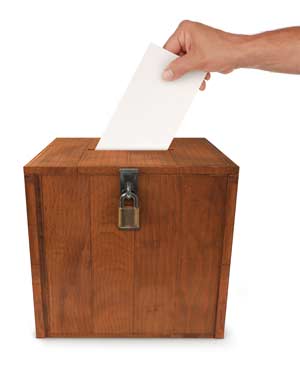Reed promotes regional presidential primaries for 2012
 Secretary of State Reed is ramping up efforts to persuade the national political parties to reform the country’s “dysfunctional” system of picking our White House nominees.
Secretary of State Reed is ramping up efforts to persuade the national political parties to reform the country’s “dysfunctional” system of picking our White House nominees.
Reed and the National Association of Secretaries of State are hoping the parties will replace the current free-for-all system of increasingly early primaries with a more rational system of rotating regional primaries. Reed, a former NASS president and a senior member of its committee on primary reform, made the case to a study committee of the Republican National Committee in Washington, D.C., on Thursday.
At the very least, Reed said, the American voters and the campaigns themselves would greatly appreciate it if the parties would agree to start the 2012 primaries later in the winter.
The 2008 White House race, with no incumbent running on either major ticket, started extremely early, with 37 states and the District of Columbia voting by the end of February, combined with nine in 2000, Reed noted. Eighteen states leapfrogged to earlier on the calendar and candidates were forced to campaign and air commercials for the January caucuses and primaries during the holidays of November and December of 2007, a full year before the election. Reed said:
“There is a growing call for a process that is logical, orderly and fair.”
The preferred plan, he said, would allow Iowa and New Hampshire to keep their earliest-in-the-nation honor, and then cluster the other states into geographic regions, mixing small, medium and large states. Regional primaries would be held in March, April, May and June, with the order rotating every four years. Secretary Reed added:
“By design, the plan encourages caniddates to become well-versed on issues facing all regions of the U.S., not just those taking priority in early primary states. Candidates, voters and political party members are increasingly frustrated and confused by our seemingly arbitary and chaotic process. … It is time to establish a process that gives every state and its voters a reasonable opportunity to play a role in the selection of the presidential nominees, with results that are representative of all regions of the country.”